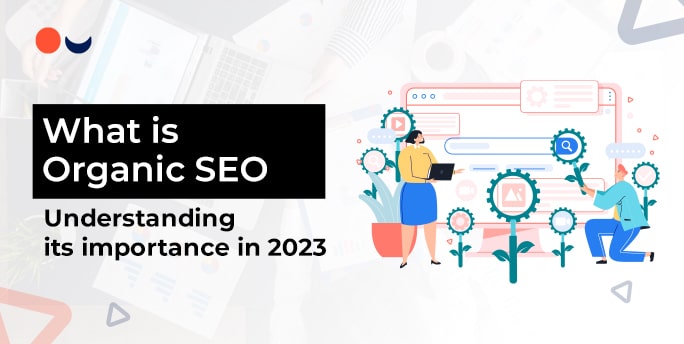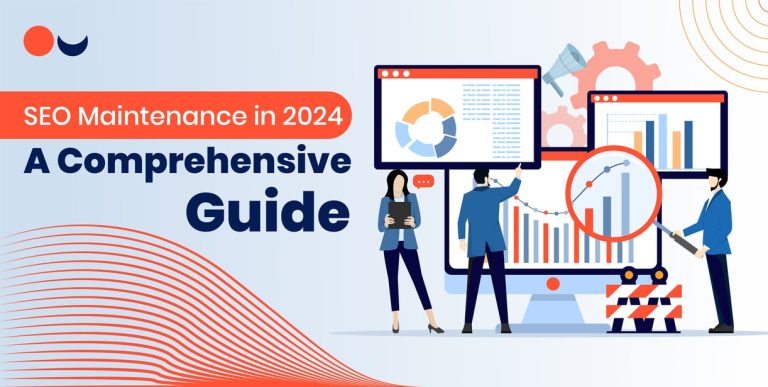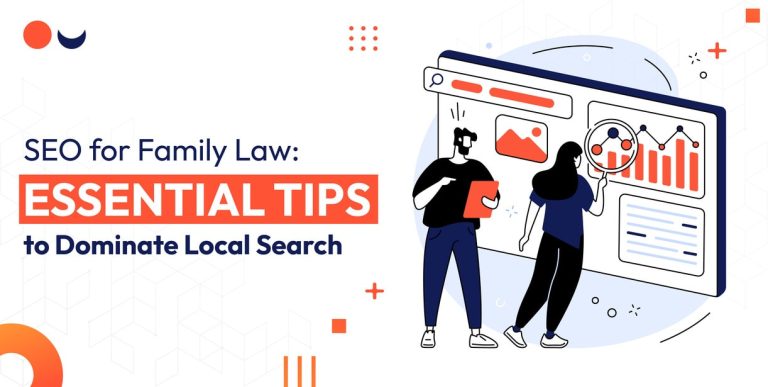In today’s digital world, where every business is fighting for online visibility and traffic, organic SEO has become the holy grail of marketing success. As we head towards 2023, understanding the importance of organic SEO has never been more critical. In this blog post, we will dive into what organic SEO is and why it matters in 2023.
So buckle up and get ready to take your digital presence to new heights with these essential insights on one of the most crucial aspects of modern-day marketing!
Introduction to Organic SEO
Organic SEO is the process of optimizing a website for Google search with the goal of earning higher web traffic levels and improving the visibility of the site.
Search engine optimization, or SEO, is an abbreviation. In order to increase a website’s exposure and organic search results in Google and other major search engines, this long-term marketing technique is used. The primary goal of organic SEO is to increase web traffic by appearing more prominently on Google search engine results pages (search engine results page).
The benefits of organic SEO are:
- It is a long-term marketing strategy which can be employed to improve website visibility
- The main aim is to increase website traffic levels through better visibility
- It can help build brand awareness
- It can help increase leads and sales from your website
- It can improve ROI (return on investment) from your digital marketing activities
A few things you should know about Google before starting your organic SEO journey:
- Google’s mission statement is “to organize the world’s information and make it universally accessible and useful”.
- Google want to provide their users with the best possible experience by giving them the most relevant and useful results for their queries.
- Google uses over 200 different signals or “ ranking factors ” in their algorithm to determine which websites should rank higher than others for a given query.
What is Organic SEO?
The technique of optimizing a website for natural search engine results is known as organic SEO (SERPs). The primary objective of organic SEO is to raise a website’s visibility and click-through rate (CTR) in order to increase the number of users that visit it via organic search traffic.
On-page optimization and off-page optimization are the two basic divisions of organic SEO. Off-page optimization refers to all actions conducted outside of the website to increase visibility and CTR, whereas on-page optimization refers to all actions made within the website to boost ranking in SERPs.
Some common on-page optimization techniques include optimizing title tags and meta descriptions, improving website content quality, and creating rich snippets. Off-page optimization techniques include link building, social media engagement, and brand mentions.
Organic SEO is important because it can help a website attract more visitors from organic search traffic. This, in turn, can lead to increased leads and sales for businesses that rely on their websites for marketing and sales purposes. Additionally, organic SEO can help build trust and credibility with potential and current customers.
Benefits of Organic SEO
The technique of optimizing a website for natural search engine results is known as organic SEO (SERPs). It is a long-term, sustainable marketing tactic that emphasizes raising a website’s visibility and standard.
Let’s discuss some of the benefits of organic SEO in detail:
Improved website visibility
You may improve your chances of showing up in SERPs by optimizing your website for search engines. More website visitors may result as a result of this.
Increased brand awareness and credibility:
Ranking high in SERPs can help build trust and credibility for your brand. Users are more likely to click on results that appear on the first page of SERPs.
Long-term results:
Once you achieve high rankings in SERPs, it is generally easier to maintain those rankings than it was to achieve them in the first place. This is because organic SEO is a long-term strategy that focuses on improving the overall quality of your website.
Overall, affordable SEO services can be beneficial for both small businesses and large enterprises alike. If you’re looking for a way to improve your website’s visibility and attract more visitors, organic SEO may be right for you.
6 Ways to Optimize your Website for Organic SEO
Organic SEO is the process of optimizing your website for Google’s search algorithm. The goal of organic SEO is to rank higher in Google’s search results for relevant keywords.
To optimize your website for organic SEO, you need to:
- Understand how Google’s search algorithm works.
- Identify the keywords that are relevant to your business.
- Use those keywords throughout your website, including in the title, header, and body tags.
- Optimize your website for speed and mobile friendliness.
- Build high-quality backlinks to your website from other authoritative websites.
- Monitor your SEO progress and adjust your tactics as needed.
By following these steps, you can improve your website’s organic SEO and start driving more traffic from Google.
How Does Organic SEO Help Your Business?
Organic SEO is the process of optimizing your website to rank higher in search engine results pages (SERPs), thereby increasing your chances of earning more organic traffic. The main benefits of organic SEO are:
It helps you attract more visitors:
Rankings on the first page of SERPs receive 91.5% of all clicks, while those on the second page only get 4.8% of clicks. This means that if you want people to visit your site, you need to be ranking high in SERPs.
It improves your brand visibility and credibility:
Being visible on the first page of SERPs for your target keywords conveys to users that you are a credible and authoritative source on those topics. This can help increase both brand awareness and click-through rates (CTRs).
It increases your website’s click-through rate (CTR):
The likelihood that someone will click on your listing increases as you go up the SERPs. A higher CTR may result in more traffic and ultimately more conversions.
It creates a better user experience:
Optimizing your website for organic search also includes making sure it provides a great user experience. This includes having relevant and targeted content, as well as a mobile-friendly design.
Techniques for Improving Organic Search Rankings
The technique of optimizing a website for natural search engine results is known as organic SEO (SERPs). Enhancing a website’s visibility and organic search traffic is the primary goal of organic SEO.
There are a number of techniques that can be used to improve organic search rankings, including:
- Conducting keyword research: In order to identify the best keywords to target for your website, it is important to carry out extensive keyword research. For this, a number of tools are available, including SEMrush and the Google AdWords Keyword Planner.
- Optimizing on-page elements: Once you have identified the most effective keywords, it is important to ensure that they are included in key places on your website, such as the title tag, meta tags, header tags, and body content.
- Creating high-quality content: A major factor that determines how well your website will rank in SERPs is the quality of your content. To create content that is both informative and engaging, make sure to include relevant keywords throughout and use various media types, such as images, infographics and videos.
- Building backlinks: One way to show search engines that your website is authoritative and trustworthy is by building backlinks from other websites. This can be done by creating great content that other websites will want to link to or by Guest blogging on other sites in your industry
Challenges Faced While Implementing an Organic SEO Strategy
Organic SEO can be a challenge to implement effectively, especially for businesses that are new to the concept. There are a number of factors that need to be considered in order to make sure that your organic SEO strategy is effective, and these can be difficult to get right.
One of the biggest challenges is ensuring that your website is optimised for the right keywords. It’s important to target keywords that are relevant to your business and have a good search volume, but they also need to be achievable. If you’re targeting keywords that are too competitive, it will be very difficult to rank well for them.
Another challenge is building up enough link equity to compete with other websites. This can be done through link building or by creating great content that other people will want to link to. It can take a lot of time and effort to build up enough link equity, so this is something that needs to be planned for in advance.
Finally, you need to make sure that you’re monitoring your progress and making changes where necessary. Organic SEO takes time to show results, so it’s important not to get discouraged if you don’t see an immediate improvement. Keep track of your rankings and traffic levels so that you can see how your strategy is performing, and make changes where necessary.
Organic SEO Cost vs Paid SEO
Organic SEO costs can vary depending on the size and complexity of your website, the competition in your industry, and the scope of the SEO work required.
If you have a small website and only need to make minor technical optimizations and content updates, you may be able to do it yourself or hire an SEO consultant for a few hundred dollars per month.
However, for larger websites or more competitive industries, you may need to invest thousands of dollars per month in ongoing SEO work, including creating high-quality content, building backlinks, and optimizing technical SEO.
Paid SEO costs also vary depending on the advertising platform, the competition in your industry, and your advertising budget.
For example, with pay-per-click advertising, you only pay when someone clicks on your ad, and the cost per click can range from a few cents to hundreds of dollars, depending on the competition for the keywords you’re targeting.
Social media advertising and display advertising typically have a cost-per-thousand impressions (CPM) model, where you pay for every thousand times your ad is shown.
The cost per thousand impressions can range from a few dollars to hundreds of dollars, depending on the platform, targeting options, and competition.
In summary, Organic SEO services can be a cost-effective approach in the long run, but the costs can vary widely depending on your website and industry.
Paid SEO can provide immediate results but can be expensive, and the costs depend on the advertising platform and competition. It’s important to weigh the costs and benefits of each approach and determine which one is best suited to your goals and budget.
Trends in Organic SEO for 2023
Organic SEO is constantly evolving as Google’s algorithm updates and new technologies emerge. In 2023, we anticipate the following trends will be most important for organic SEO:
- Mobile-first indexing
- Voice search
- Visual search
- Schema markup
- User experience (UX)
- Content personalization
- AI and machine learning
Conclusion
Organic SEO is essential to any business that wants to remain competitive in an increasingly digital landscape. The strategies and techniques used in organic search engine optimization are ever-evolving, so it’s important for businesses of all sizes to have a comprehensive understanding of what this process entails and how it can be used effectively.
With the right knowledge, you can ensure that your website remains visible across different search engines and provides users with relevant content. By staying up-to-date with the latest trends, you can develop powerful campaigns that will keep your site at the top of its game in 2023.
Frequently Asked Questions
What is organic SEO?
Organic SEO is the process of optimizing a website for Google search with the goal of earning higher web traffic levels and improving the visibility of the site.
Why is organic SEO important?
Organic SEO is important because it can help improve the visibility of a website in Google search, which can lead to higher web traffic levels and more customers or clients.
How can I improve my organic SEO?
There are a number of things you can do to improve your organic SEO, including:
· Researching and using relevant keywords throughout your website
· Creating high-quality content that engages readers and encourages them to share
· Building links from other websites back to yours
· Making sure your website is mobile-friendly and loads quickly
· Ensuring your website is easy to navigate and contains no broken links
What are some common organic SEO mistakes?
Some common organic SEO mistakes include:
· Keyword stuffing, or using too many keywords in your content in an attempt to game the system
· Creating low-quality, thin content that offers little value to readers
· Neglecting link building or engaging in black hat tactics like buying links
Can organic SEO be used in conjunction with other marketing efforts?
Absolutely! In fact, we believe that a well-rounded marketing strategy should make use of both paid and organic SEO to generate the best outcomes to help your business grow.






